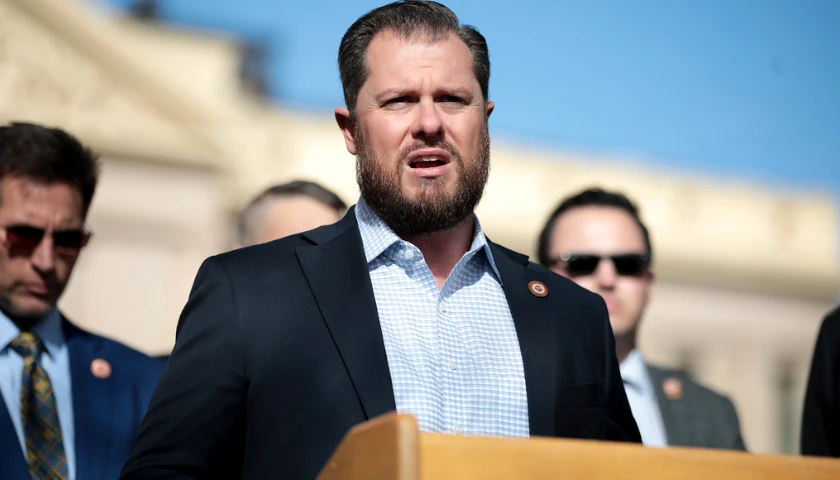by Hank Long
Despite the vibe you may be getting from the national media, the presidential election is still more than a year away. But that doesn’t mean voters won’t have a ballot to fill out this November.
The 2023 election cycle in Minnesota won’t be eventful for most voters. There are no legislative seats or congressional or statewide offices on the ballot. But school district communities representing about 1.7 million residents across the state — which combined, steward well over $4 billion in tax dollars — will be holding elections this fall.
In fact, even though it’s an “off year” and only 28 of the state’s 327 school districts have a board election coming up, 15 of those 28 districts represent more than half of the most populous districts in the state, according to state demography reports. Some say that’s not a coincidence, as it is politically advantageous for high-profile school districts to hold elections in “odd” years where voter turnout is historically low and fewer voters are interested in becoming engaged when only one or two races are on the ballot.
Districts with 40,000 or more residents within their boundaries that are holding elections this fall include: St. Paul, Anoka-Hennepin, Rosemount-Apple Valley-Eagan, South Washington County, Duluth, Bloomington, Mounds View, Wayzata, Hopkins, Roseville, St. Louis Park, West St. Paul-Mendota Heights, Edina, Minnetonka and Richfield. And most of those aforementioned districts have annual budgets that far exceed $100 million. St. Paul’s district boundaries represents more than 300,000 residents and the district recently approved a $1 billion budget. Anoka-Hennepin, which has long held the distinction of the district with the largest student enrollment in Minnesota, encompasses boundaries of more than 248,000 residents. Its school board approved a $610 million budget in June. So in terms of dollars, there’s a lot at stake on the ballot across the Twin Cities, and even in some Greater Minnesota communities.
But will anyone not already serving on one of these school boards run? The Minnesota Parents Alliance is hoping so.
The non-partisan, non-profit organization (formed just over a year ago), whose self-described mission is to educate and empower “parents to effectively engage in their school community as strong advocates for academic achievement, equality, and parental rights,” is holding a School Board Campaign Training event later this month in hopes that candidates in any of the 28 districts with seats up for grabs will utilize its resources to get up to speed with what executive director Cristine Trooien has described as an important, but “extremely compressed campaign season.”
Thanks to a secretary of state-determined filing period that runs for two weeks in August, and early voting that begins on Sept. 22, newly-minted candidates for school board races have approximately five weeks to get their message out to voters before folks can begin voting.
“Certainly, this is a biased process that favors incumbent candidates, and it poses incredible challenges for those who decide to challenge incumbents,” Trooien said. “But you’ll also never find an election that’s easier to run than you will in an ‘off-year.’”
That’s because off-year elections that feature sometimes just one or two local races historically generate very low voter turnouts — as low as 10 or 15 percent turnout compared to 70 or 80 percent turnout in a presidential year. That means its harder to engage a large swath of voters. But for candidates who can activate a network of engaged voters, they have a lower threshold of votes to capture, Trooien said.
“Sometimes you can swing an election on a couple hundred votes,” Trooien said. “You don’t really need to earn a lot of votes to put a candidate over the top.”
Voters in these districts will know for sure who their candidates are by Aug. 15. In 27 of the 28 upcoming school board elections, the filing period for candidates lasts for two weeks and begins Aug. 1. The Duluth School District features a primary, so by law, that filing period opened May 16 and closed May 30. In that race, seven candidates filed for three seats, four of whom for the same district, which will be narrowed to two candidates come the Aug. 8 primary.
2023 legislative session on voters’ and candidates’ minds?
Some of the top issues on the minds of voters this season may come from many of the big changes handed down from the Democrat-controlled legislature that will impact school districts, including new ethnic studies curriculum mandates, unfunded mandates in the form of new paid leave programs and new rules restricting school staff from using exclusionary discipline when students misbehave.
Some districts moving away from ‘off-year’ elections
While the vast majority of school districts in Minnesota hold their elections during “even years,” where more voters are paying attention to politics, some communities that have long held school board elections during “off-year” election cycles are beginning to migrate to presidential and gubernatorial election years.
In 2021, the Orono School Board unanimously voted to move its elections to “even” years, starting in 2024. That meant that school board members currently serving had their term extended by a year. White Bear Lake School District followed suit in 2022. The city of Edina is putting an ultimatum to Edina Public Schools to move its election year to even years or begin paying the city for administering its elections in “odd years.” Up front, moving an election to an even year can seem frustrating for some in those communities who want to see a change in the school board makeup sooner rather than later, Trooien said.
“It is a bit cringey for some to have to ride it out with current school board members (with their terms extended by one additional year), but if you are motivated to advocate for that change, it does ultimately benefit the district and parents of the district who want to run and see change. It creates an opportunity where there are going to be more voters engaged and paying attention. And it allows much more visibility of school board candidates during these more high-profile election cycles.”
School districts with elections coming up this fall include:
- Anoka-Hennepin (ISD 11) has 3 seats up for elections; represents 248,441 residents
- Bloomington (ISD 271) 3 seats, 87,775
- Duluth (ISD 709)* 3 seats, 94,497
- East Central (ISD 2580) 3 seats, 6,825
- Edina (ISD 273) 3 seats, 42,269
- Fridley (ISD 14) 3 seats, 17,728
- Hastings (ISD 200) 4 seats, 31,366
- Hinckley-Finlayson (ISD 2165) 3 seats, 7,173
- Holdingford (ISD 738) 4 seats, 5,047
- Hopkins (ISD 270) 4 seats, 66,448
- Inver Grove Heights (ISD 199) 5 seats, 29,200
- Minnetonka (ISD 276) 4 seats, 41,871
- Mounds View (ISD 621) 4 seats, 77,663
- Mountain Lake (ISD 173) 3 seats, 4,475
- Ogilvie (ISD 333) 3 seats, 3,499
- Richfield (ISD 280) 3 seats, 42,710
- Rosemount-Apple Valley-Eagan (ISD 196) 4 seats, 163,513
- Roseville (ISD 623) 3 seats, 56,378
- Rothsay (ISD 850) 3 seats, 1,047
- Rush City (ISD 139) 3 seats, 7,004
- South Washington County (ISD 833) 3 seats, 113,887
- Spring Lake Park (ISD 16) 3 seats, 35,662
- St. Anthony-New Brighton (ISD 282) 3 seats, 11,913
- St. Louis Park (ISD 283) 3 seats, 47,104
- St. Paul (ISD 625) 4 seats, 303,176
- St. Peter (ISD 508) 3 seats, 15,976
- Wayzata (ISD 284) 4 seats, 71,701
- West St. Paul-Mendota Heights-Eagan (ISD 197) 4 seats, 45,984
- Westonka (ISD 277) 4 seats, 19,385
* Duluth is only one on this list with a primary; candidate filing deadline has passed
– – –
Hank Long is a journalism and communications professional whose writing career includes coverage of the Minnesota legislature, city and county governments and the commercial real estate industry. Hank received his undergraduate degree at the University of Minnesota, where he studied journalism, and his law degree at the University of St. Thomas. The Minnesota native lives in the Twin Cities with his wife and four children. His dream is to be around when the Vikings win the Super Bowl.









Needed long overdue ok MN